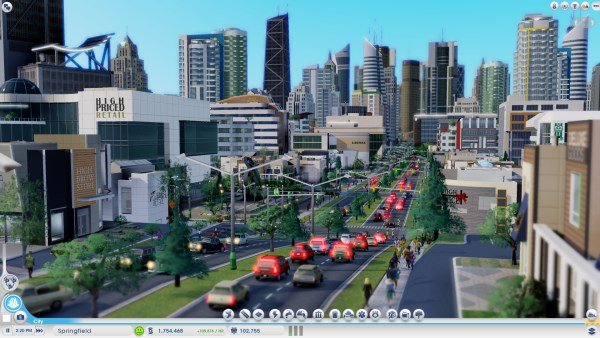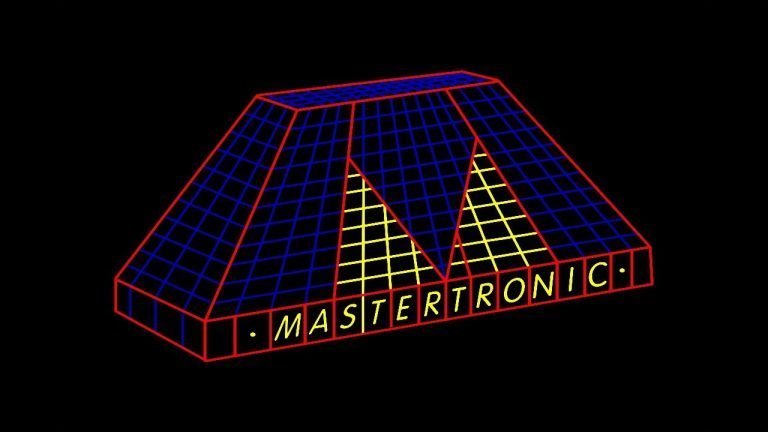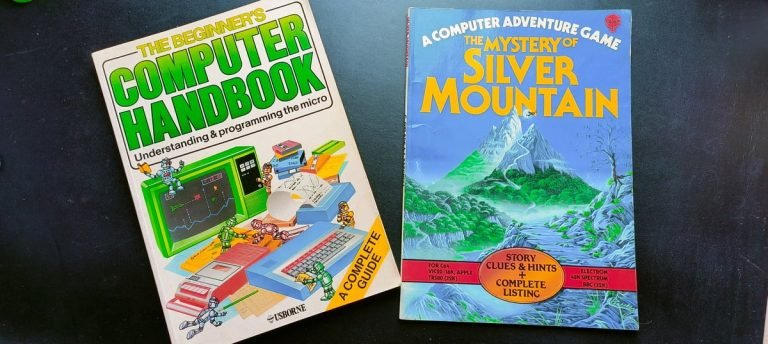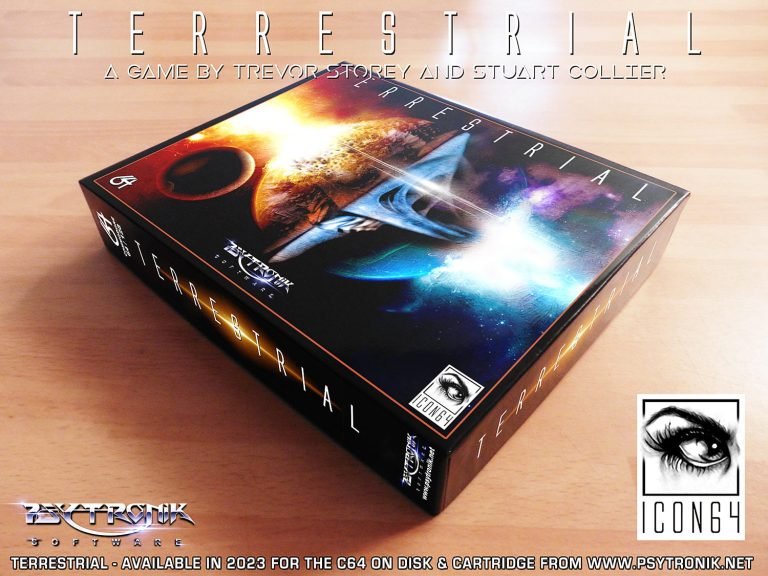Will Wright: The Mind Behind SimCity & The Sims
Last Updated on May 23, 2024
How have the games of one developer, Will Wright, managed to punctuate my gaming experiences so decisively over the past 40 years?
I realised quite recently that my video game experience, from the mid 1980s through to the present day, has been punctuated by the games of one guy.
Will Wright.
One of the earliest Commodore 64 games I recall playing was Broderbund Software’s Raid on Bungeling Bay (1984). A top-down helicopter action game, this had a heavy strategic element. Pitting the player against an evil empire, winning meant bombing its factories, while avoiding gunboats and jet fighters. The game engine Wright built for Raid on Bungeling Bay gave him more pleasure than the game itself. It was the basis for what would become SimCity.

From what I remember, I didn’t complete Raid on Bungeling Bay, although I’m sure I gave it a few good goes. It wasn’t long after the last attempt that I stumbled across SimCity on my uncle’s IBM PC. This would have been in the summer of 1990, and I played the game over a series of evenings at my grandparents’ house. (Each evening, gaming was accompanied by a succession of hard rock and heavy metal LPs on a Pioneer seperates Hi-Fi system.)
By this point, Wright had formed Maxis with investor Jeff Braun, a move that allowed him to release SimCity in 1989. Maxis went on to publish various games other companies wouldn’t touch, often with a Sim element. Some titles were released as business simulations, such as SimRefinery and SimHealth.
Will Wright has described himself as “obsessive”. Others describe him as a genius, one of the few individuals to truly influence video games across all platforms.
Building SimCity
The creation of SimCity and its union of industrial, residential and commercial sectors, roads and trains and electricity lines (not to mention the later water pipes and monorails) was a surprise hit. We’ve all considered what a poor job town planners are doing, and how we would like to give it a try, and all bemoaned the woeful inadequacies of local politicians and town councils.

SimCity gives the perfect sandbox to test these theories out, with a few added bonuses like bad weather, fires, earthquakes and prehistoric monster rampages…
I had to wait a while to get my own copy of SimCity. While it was released on the Commodore 64, I was never able to find a copy in shops nearby. (In those days, mail order meant messing around with postal orders or getting parents to write cheques. That was never easy.) However, upon being gifted an Amiga 500 in 1991, the game was one of the first I bought. It’s fair to say that version was better than the PC offering. (I spent most nights switching between SimCity and Sid Meier‘s Civilization.)
Various SimCity sequels have hit devices over the years, most recently mobile versions. My personal favourite of these is the Pocket PC/Windows Mobile release of SimCity 2000. A city in my pocket! What’s not to like?

While aware of SimAnt and SimEarth, I didn’t encounter another Sim-type game aside from SimTower. That’s a game I’ve played a few times, and has been copied over the years. Think Star Wars: Tiny Death Star (2013) on mobile devices.
The Sims, and Will Wright’s SimCity sequels
Those titles are just a sample of the various SimCity sequels that expanded on the original premise. But after this, the only place left to go was into the city – or into one of its suburbs, at least.
The world’s most successful PC game series of all time, The Sims (released in 2000) has sold over 11 million copies. Conceived by Will Wright as a virtual dolls house (and satire of consumer culture), various and endless expansion packs have been released for both the original and its sequels.
I first saw The Sims in a PC gaming mag (probably PC Zone or PC Gamer) and bought a copy as soon as it came out. At this time, I was phasing away from the Amiga 1200, and my then-girlfriend had a basic PC with a Cyrix processor. This was inadequate to run The Sims, which meant I didn’t end up playing it properly until a few months later when I built my first PC (with the help of a much-missed friend).
Playing the original Sims was a remarkable experience. No other game had successfully recreated those “moments of life” in such a playable way. To be honest, I probably spent too much time on home design and mods, but it was a compelling experience. In fact, I recall The Sims was the first game I came across that seemed to give birth to its own fan economy. Objects and skins were traded for real world money and imported into the game, adding some considerable depth.
Playing with Spore(s)
After The Sims, Wright moved onto Spore, with which it could be said that he completed the circle of virtual life. Developing ideas of simulated evolution first seen in The Sims 2 and SimAnt, Spore lets you create life. You’re in the enviable position of being able to design and nurture a brand new life form from its origins as a multi-cellular organism.
Spore was originally to be called Sim Everything, but dropped “Sim” from the title. Giving a sense of moving away from the Sims series, Wright told Wired “It feels like it wants to be breaking out into a completely different thing than what Sims (series) was.”

Various people collaborated on Spore, not least respected musician and producer Brian Eno (Roxy Music, producer of Phil Collins, and many others). The music in the game, created with programmer Peter Chilvers, is generated in relation to where you are in the game. Indeed, no two games of Spore can ever be the same, in any sense.
One of the reasons behind the unique and creative aspect of Will Wright’s games – which are evidently highly individual in their design – could be his background as a pupil of a Montessori school, where pupils are taught self-motivation and problem solving as well as various creative avenues. Certainly Will Wright’s contributions to gaming will be remembered as unique, while Wright himself is one of a handful of games designers that could be compared with the cinematic auteur role filled by directors such as Stanley Kubrick or Orson Welles.
Will Wright today
It would be easy for Will Wright to kick back and enjoy life having created three hugely influential games. However, he hasn’t stopped working.
In 2018, a game called Proxi was announced. At Intel’s AI Everywhere event, Will Wright and Lauren Elliott’s Gallium Studios presented some concepts from the game.
Proxi is an AI sim, which Wright describes: “This is in some sense a game of self-discovery, a game where we actually uncover the hidden you – your subconscious, your inner ID, and bring it to the surface, bring it to life so you can interact with it, you can play with it, you can learn from it and it can learn about you.”
I’m not quite sure what to make of Proxi at this point, but I suspect it will be yet another landmark game from Will Wright and his collaborators.
It is 40 years since Raid on Bungeling Bay laid the groundwork for one of gamings’ most radical titles. Sadly, we don’t yet know when Proxi will arrive. Whenever it lands, it is reassuring to know that Will Wright continues to develop remarkable games.
The open source version of the original SimCity, Micropolis, is available to download from GitHub.

Gaming since 1984, retro gaming since 2004. Contributes to Linux Format magazine, TechRadar.com, and other publications.




